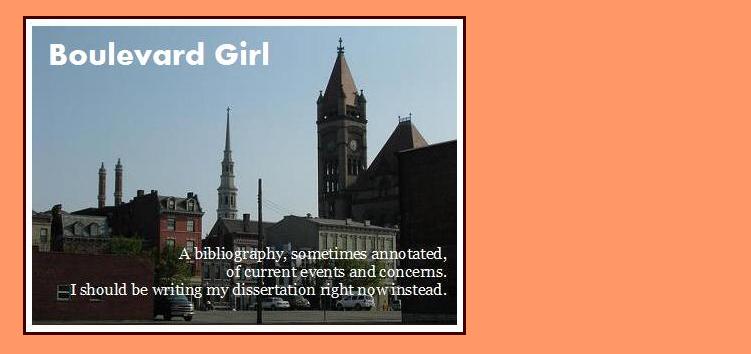Hussein Ibish has been writing extensively about Libya. He calls for robust, US-led intervention on behalf of the anti-Gaddafi revolutionaries. I don't understand the situation well enough to evaluate his argument about Libya in particular. It seems clear though, that the wave of fire spreading across North Africa and the Middle East puts into focus the question of US power in the region--influence, involvement, or what have you--and for those who chastise it, "meddling." See also "Act. Now: the world must do more than watch the Libyan bloodletting," Hussein Ibish. Foreign Policy. Feb. 24, 2011.
Not just US power but overlapping controversies about "humanitarian intervention," or international judgment and punishment in general.
One thing remarkable about this case is that you have the Libyan Ambassador to the UN, Mohamed Shalgham, a Gaddafi crony since their youth, denouncing the "brother leader" and calling for international help to prevent Gaddafi's efforts to make sure all of Libya goes down in flames with him.
Shalgham repeated: He is saying, "either I rule you or I kill you"
Shalgham repeated: He is saying, "either I rule you or I kill you"
See Shalgham's rather dramatic speech at the UN Security Council Feb. 25, 2011.
Background on US-Libya Relations:
Elliott Abrams, who was on the NSC under Bush when Libya "made the switch" in 2003, wrote an op-ed in the WSJ on Friday, Feb. 25, explaining the strategic, if unpleasant, bargain the US government had to make with Gaddafi.
After the U.S. Army made short shrift of Saddam Hussein's forces in 2003, Gadhafi approached British intelligence and sought to come in from the cold. He agreed, after negotiations conducted largely by the CIA and London's MI6, to abandon terrorism and hand over to the U.S. his programs for developing missiles and weapons of mass destruction.
He kept his part of the bargain: Those materials reside at a military base in the U.S., and he has stayed away from terrorist groups. Libya began making payments to the families of those killed on Pan Am 103, ultimately reaching an agreement with all but one family and handing over a total of $1.5 billion...
Our annual human rights reports told the truth, but there was no question that the Bush administration (and the Obama administration that followed) felt limited by Gadhafi's adherence to the bargain. We had not promised to be silent about human rights abuses, and we were not, but there was no real energy behind our statements. We were doing business with Gadhafi, not trying to overthrow him...
Seen from this bloody February of 2011, the agreement with Libya was still the right policy. Gadhafi in his bunker with control over missiles, chemical weapons and a rudimentary nuclear program is a terrifying thought. So is a Libya after regime collapse with those materials available to the highest bidder.
Had we reneged—taken Libya's weaponry but then started a campaign against Gadhafi's rule—he'd have re-armed fast and gone back to terrorism. It's also not clear what more strenuous and public efforts to promote change in Libya would have achieved. It's not as if one could reason with Gadhafi.And finally, we should take a moment to recall that the Libyan government, such as it is/was, has been defined by a single "personality" to a greater extent than, well, most governments one hears about.
From The National Post [Canada]. Adam McDowell and Adrian Humphreys. Feb. 22, 2011.
“The non sequiturs, the paranoid conspiracy theories, the anger — if it weren’t so tragic, we could laugh at it,” said David Schenker, director of the program on Arab politics at the Washington Institute for Near East Policy...
Nasser Wedaddy, civil rights outreach director for the American Islamic Congress, warned: “People think of Gaddafi as this buffoon who is acting on impulses and whims. There’s some truth to that. “But through the years,” continued the former resident of Libya, “Gaddafi has been a master of manipulating media. He uses his buffoonery … to get media attention, which he craves. And a lot of his talking points, which he has recycled through the years, are designed to appeal to his support base, [to portray him as] the guy who’s confronting the big powers in the world.”
And I was hoping someone had done this "best of" series: Fashion, Qaddafi-style. Vanity Fair. Henry Porter and Annabel Davidson. August 12, 2009.
***



